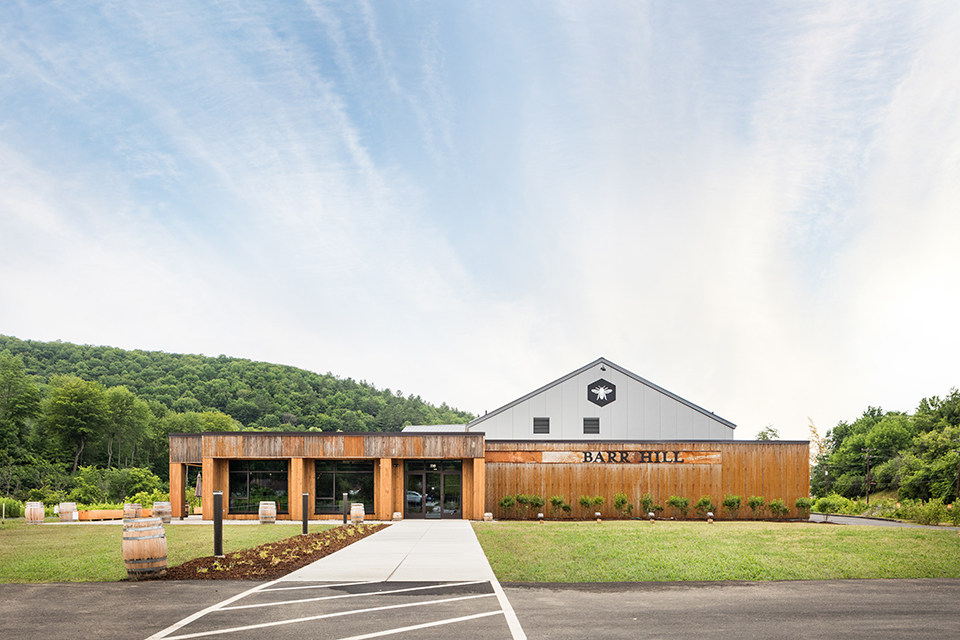
Project Details:
Montpelier, VT
Food/Beverage; Distillery; Hospitality
Project Overview:
New Construction of over 27,000 sf of new production, administrative, retail and community spaces for this growing distillery operation
Caledonia Spirits was looking to expand and relocate to provide a vibrant entertainment and Vermont-made product destination within walking distance of historic downtown Montpelier. Energy efficiency, durability, and value have been carefully weighed at each decision as the project has taken shape.
A steel frame with an insulated metal panel skin is paired with high performance mechanical, lighting and daylighting systems to provide comfortable and healthy spaces for employees and visitors alike. Ample daylighting via both windows and skylights, ensures the production spaces are enjoyable spaces to work and visit as well. The interior industrial material pallette consists of exposed steel structure, locally sourced materials, and exposed concrete floors.
This facility will provide Caledonia Spirits with long-awaited room to grow and develop in production, administration, hospitality and community involvement.
A Challenge:
Situated on three acres between the Winooski River and an active railroad line, the Caledonia Spirits project site is on former farmland. At some point, the site’s use shifted from agriculture to an active fill site, totaling nearly 10 vertical feet of fill over several decades. This fill presented a challenge to the project in several ways. Its bearing capacity at the standard foundation depth was neither adequate nor reliable, its classification as urban soils made moving the soil off-site expensive, and buried 16 feet below the proposed facility is a major water distribution line for the city of Montpelier, VT. A standard approach to foundation design utilizing spread footings and frost walls was an expensive and time-consuming solution.
Our Solution:
In conjunction with the design and subcontracting teams, NCC explored options to find the most cost-effective and efficient solution to building on this challenged site. Approaches considered included driven piles, helical piles, concrete spread foundations, and dynamic compaction. In the end, dynamic compaction proved to be the perfect solution. What would commonly be referred to as a “groundbreaking” was more of a “ground-pounding” for the Montpelier site. For 10 days, a dynamic compaction crane, modified specifically for the task, hoisted and dropped an eight-ton weight over the entire footprint of the new 25,000-square-foot distillery. A 6-foot-by-6-foot grid was flagged, and the crane stopped and dropped the weight at each of the grid intersections an average of five times. This effort totaled a staggering 6,500 strikes. Each strike delivered a wave of soil compaction 15 to 20 feet deep. This uncommon foundation solution allowed the project to stay on budget and on schedule.
Project Manager, New England Air Systems



